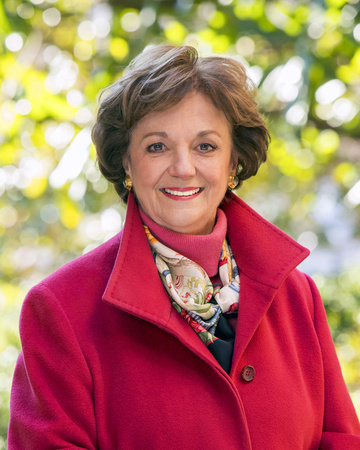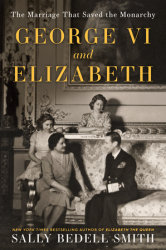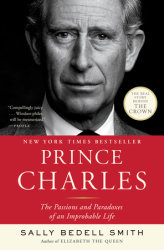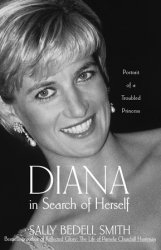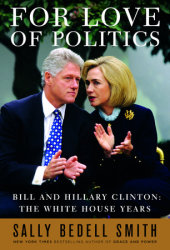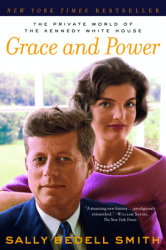At ninety years of age, Queen Elizabeth II is the longest ruling monarch in British history. She’s been queen so long, and outlived so many presidents, prime ministers, and other members of the royal family, it almost seems impossible she will ever not be queen. When the day finally comes, the crown will pass to her eldest son, Charles, a man who has spent nearly seventy years knowing he will be king…someday.
Even were he to assume the throne tomorrow, he would do so at an age when most people are retiring from their job, not starting their first day of work. Being king will be, for Charles, at most a third act, but one for which his whole life has been a preparation. Throughout his life, Charles has frequently been overshadowed: first, by his no-nonsense mother and authoritarian, bullying father; then by his glamorous, horribly matched wife; and, these days, by his likable son, media-friendly daughter-in-law, and perfectly groomed grandchildren.
The trials of a life spent slightly left of the spotlight have made Charles an interesting, contradictory figure, one whose triumphs and accomplishments have often been overlooked, while his standoffishness made his foibles hard for the public to forgive. In her new book, Prince Charles, Sally Bedell Smith details the fascinating evolution of a king in waiting, revealing Charles to be as interesting, sympathetic, and complicated as the rest of his endlessly-documented family.
PENGUIN RANDOM HOUSE: Many of the figures you’ve profiled in the past seem like obvious people of interest — Prince Charles less so. Was that a challenge for you going into the project? Did you approach this book differently than for more high-profile figures like Princess Diana or the Clintons?
SALLY BEDELL SMITH: Five years ago when I began to think seriously about writing a biography of Prince Charles as, in effect, a sequel to my biography of his mother, Queen Elizabeth II, he was hiding in plain sight. Nobody had written a major biography of him since the mid-1990s, when he authorized a book at a low point shortly before his separation from Diana. I had met him the previous year, in 1991, and had been intrigued by how different he was from the stereotype of the old fogey who appeared to make Diana miserable.
Now, in the glow of the Queen’s Diamond Jubilee in 2012, he felt like the forgotten man, relegated to the shadows while his revered mother and adored sons and daughter-in-law, William, Kate, and Harry, took the spotlight. But from my encounters with him, beginning with that first impromptu meeting when he was on his own, without his customary retinue, I had been accumulating questions. I wanted to examine him up close and find out, with the benefit of new perspectives and insights, what makes the future king tick.
With the Queen, my challenge was to part the curtain and show what she is really like—as a mother, a sister, a daughter, a grandmother, a friend—behind her inscrutable façade. With Charles, the challenge was to get my arms around his sprawling life, to probe the people—many of them little-known—and events that shaped his life, to trace the origins of his thinking and pull those threads through his life, and to assess his impact as Prince of Wales—a role he devised as he went along, and for which he will be remembered and admired more than his inevitably shorter reign as king.
PRH: Reading your book, I was surprised by how interesting and in some ways contradictory Prince Charles is. Was there a moment in the writing or researching when you realized you had a compelling subject?
SBS: Although I had learned a lot about Charles through the research I did for my books on Diana and the Queen, I quickly grasped that there was so much more to know about Charles. I read scores of books, watched TV documentaries he made, and I began to see the wide scope of his passions and enterprises. I found him to be compelling almost from the start, but when I began to speak to people who knew him well, I learned so many fascinating new details about his thinking and behavior. The process of researching and interviewing took about 18 months, followed by 6 months of organizing my material, then another 18 months to write the book: That was the ultimate challenge, putting together the jigsaw puzzle of his life and presenting it in a coherent fashion. It is always the challenge for a biographer, but because his life was so improvisational—unlike the Queen, who followed a straight line.
PRH: The Netflix series ‘The Queen’ was a big hit last year. Why do you think Americans are particularly interested in the royal family now, and what, if any, similarities exist between the British monarchy in the 20th century and the American political scene today?
SBS: The Netflix series arrived at an ideal time. Americans have always been intrigued by the royal family, but Charles’s marriage to Diana struck a spark. She captured everyone’s imagination with her unique combination of beauty and vulnerability. The family’s turbulent times during the Eighties and Nineties were the stuff of tabloid fodder, and of course Diana’s tragic and violent death had an almost cataclysmic effect.
Two days after the car crash, Random House asked me if I would write a biography of the princess. I arrived in London that Friday, and watched her funeral from the window of a building across from Westminster Abbey where NBC had its broadcasting headquarters. It is a day seared in my memory, and in the minds of the many millions who watched the wrenching ceremony on TV. The emergence of William and Harry, and the arrival of Kate Middleton, reignited intense interest, especially in the United States, and the Queen’s Diamond Jubilee a year after William and Kate’s marriage intensified the fascination. Charles began to emerge as a figure in his own right in the past decade, having rebuilt his life and married his true love.
In my travels for “Elizabeth the Queen,” I spoke to many groups. If there was a persistent theme it was, “Why can’t we have someone like the British monarch, a figurehead who is the light above politics, who sets high standards of behavior, whose example encourages community service, who is a force for unity and tradition in good times and bad?” Now more than ever, Americans yearn for someone to admire and even to emulate, and the British monarchy benefits from that yearning.
PRH: One the saddest aspects of your book is the sense that Charles knew he was getting into a doomed relationship long before he married Princess Diana, and would have been far more happy remaining single, had that been an option. Do you think Britain will ever accept a monarch (or future monarch) who doesn’t marry?
SBS: While the monarchy has modernized incrementally under the leadership of Queen Elizabeth II, especially since the death of Diana, when she and her advisers had the good sense to relax protocol and permit more informality, certain traditions prevail. There is a line of succession that could permit an unmarried monarch, but the family is at the center of the monarchy, and those values endure. That said, the royal family is now comfortable with marriage for love, regardless of background. Princess Anne’s daughter Zara married a professional rugby star. Kate Middleton’s grandmother worked in a coal mine. And now Harry has a serious relationship with a biracial American woman of accomplishment who is well educated and has serious philanthropic interests. This sort of open-mindedness was unthinkable back in the 1950s, but in the 21st century it is part of the monarchy’s fabric.
PRH: The portrait you paint of Charles is of a man who might have been more comfortable decades, or even centuries, earlier, struggling to fit in with a society that was beginning to question the necessity of the royal family in general. What do you see as the future of the monarchy?
SBS: Charles has always been a man in the middle, caught between the old world of his mother, and paving the way for the new world of his two sons. His trials and tribulations have permitted William and Harry to lead more normal lives, still with the dignity of the monarchy, but in a significantly different way from Charles. He will turn 70 next year, so his reign will be relatively brief. I fully expect him to operate within the constitutional constraints on the monarch, to rise to the necessity of serving as a unifying force above and beyond politics, and to set an example of dignity and seriousness of purpose. He has been particularly prepared over the past five years by the Queen’s senior advisers. William is expected to follow in these traditional footsteps, with his own stamp of modernity.
PRH: In many ways Charles’s son, Prince William, seems more comfortable with role of heir to the throne than Charles ever did. How much influence do you think Charles’ experience had on William’s attitudes and approach to his future position?
SBS: I was fascinated to learn that Charles has taken a different approach to parenting from his own father, who ruled his son with an iron grip until Charles left the navy and began creating his own role in life. Charles has always been a devoted father, but he was overshadowed by Diana. After her death, he gave his sons the freedom to lead more normal lives and make their own decisions. The Queen also took a firm hand in their upbringing, and William has called her a strong female influence he could look up to.
Charles permitted his sons to attend the schools they preferred, to serve in the army, and to choose their own experienced advisers to help them craft their roles. William’s senior adviser told me that he is keeping things simple, proceeding in a measured way, looking at the long game, and preparing to take the throne in middle age. His temperament and character resemble the Queen rather than his own father. Like his grandmother, he gets on with his duty, he isn’t flashy or an entrepreneur, or inclined to cause controversy.
PRH: What was the hardest part of this book for you to research? Did the enormous amount of material on Diana (including your own previous book) make your job easier or harder in terms of focusing on Charles’ entire life, instead of just his marriage?
SBS: Researching a book like this is incredibly time-consuming—and I want to cover every inch of ground I can find. Interviewing those who know Charles best was the most satisfying part, along with the chance to travel with him to Sri Lanka and Malta, to tour his various homes and the places that make him proud such as his model town of Poundbury. Having written about Diana and the Queen, I had a base of knowledge and a head start, and it was fun to discover material in my research for those books that wasn’t pertinent to their stories but very helpful in writing about Charles.
I also loved delving deeper into his early years and finding out much more about his range of passions and pursuits—from polo and foxhunting and watercolor painting to rebuilding the old quarter of Kabul in Afghanistan. The most difficult part of the process is always organizing my notes—an absolutely essential task that can be downright tedious. Once it is complete, I can locate every bit of information quickly, which helps ease my writing.
PRH: Who’s next for you?
SBS: After five years of keeping quiet about what I’ve discovered, I am now focusing on telling the world what I have learned, and in so doing helping people understand this complicated and compelling man.
